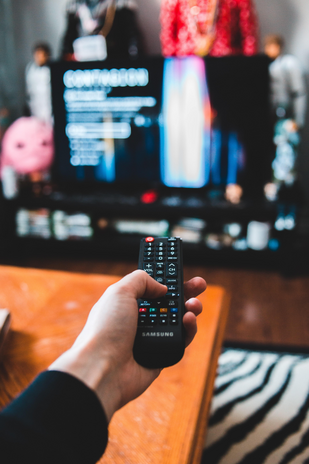On January 10th, 1999, HBO released a show that would change TV history forever. The Soprano’s paved the way for other classics such as Breaking Bad, The Wire, and Mad Men. Exploring a crime boss’s struggle with panic attacks, brought on by the stress of being the leader of two “families”, David Chase crafts a unique spin on the heroes’ journey trope. In this case, our hero, Tony Soprano, is the leader of a powerful New Jersey crime family, whose spiritual mentor is his psychiatrist Dr. Melfi. Through the humanization of who would otherwise be considered a villain, Chase invites us to question our sense of right and wrong and the lengths we would go to, to protect our family’s place in society.
Based on his experience with psychotherapy, Chase’s portrayal of the patient-clinician relationship is one of the most realistic on television (Schwartz, 2020). Tony’s experience with panic attacks and clinical depression is based on Chase’s own experiences as a teenager (“David Chase”, 2024). Many clinicians have praised the series for destigmatizing therapy and personality disorders (Tony suffers from antisocial personality disorder). Viewers are invited to sympathize with Tony, even to relate to his struggles with mental health. In this respect, the series was far ahead of its time, when portrayals of mental health in media were restricted to Girl-Interrupted and One Flew Over the Cuckoo’s Nest. It’s also revolutionary in the sense that it portrays a man going to therapy and seeking help on his own accord. No one forced Tony to seek help for his panic attacks; he went to therapy to not only better himself but also his family. Despite his praise of the Gary Cooper “strong silent type”, Tony vocalizes his problems with Dr. Melfi. You could say that David Chase helped destigmatize men’s mental health.
Mental health is not the only respect in which The Sopranos was ahead of its time. Chase also explores the dynamics of intergenerational trauma. Much of Tony’s time in therapy is spent discussing his childhood; mainly his relationship with his parents. Tony’s mother, Livia Soprano, is the matriarch of the family, and the source of much of the family’s dysfunction. Throughout his childhood, Livia was unaffectionate towards her children, threatened to kill or maim them ,and was generally self-absorbed and manipulative. The effects of her emotional abuse are explored mainly through her two eldest children: Janice and Tony. Janice (Livia’s least favourite child), left the family at a young age and had a lifelong struggle with low self-esteem. This leads her to seek out unhealthy relationships with men. She also inherits much of her mother’s manipulativeness. Tony, who stayed behind to care for his mother following their father’s imprisonment, fought constantly for his mother’s approval. Their father, Johnny, was not much better than Livia. He frequently exposed his family to violence, was neglectful, and was physically abusive towards his wife. He frequently belittled his wife and cheated on her constantly. This dynamic is replicated in how Tony interacts with his own family. Tony constantly cheats on his wife Carmela, repeats the same empty threats his mother made towards him to his children, and frequently exposes his family to violence. Here, David Chase shows how abuse in families is cyclical. Lying at the core of the show is a very timely exploration of the role of men in modern society. Most of Tony’s frustrations come from his position in the world being challenged. Whether it be his daughter dating men he doesn’t approve of, his wife’s nagging ,or his son’s aimless rebellion, Tony feels that his authority and his role in the family are being challenged. This is the trigger of his panic disorder. This malaise extends beyond the domestic, toward societal events happening at the start of the new millennium. Here, David Chase explores how middle-aged men are adapting to changes in the family structure and in society, as well as the changing face of masculinity.
With its brilliant portrayal of mental health and generational trauma, The Soprano’s is not your run-of-the-mill mob show. In fact, it’s the series that ushered in the golden age of television. It’s also having a revival with Gen-Z, especially women, who are interested in not only the series’ aesthetic (mainly the fashion) but also the complexity of the female characters. You could say The Sopranos reinvented the hero’s journey; I say that it changed our perspective of what constitutes someone who we can root for.
If you’d like this show to be your next binge watch, in Canada, The Sopranos is available to stream on Crave.
References
David Chase. (2024, January 2). In Wikipedia. https://en.wikipedia.org/wiki/David_Chase
Schwartz, D. (2020, July 31). We Asked Psychiatrists if Tony Soprano’s Shrink Is Good at Her Job. Vice. https://www.vice.com/en/article/ep4mqn/is-tony-sopranos-therapist-jennifer-melfi-good-at-her-job.


